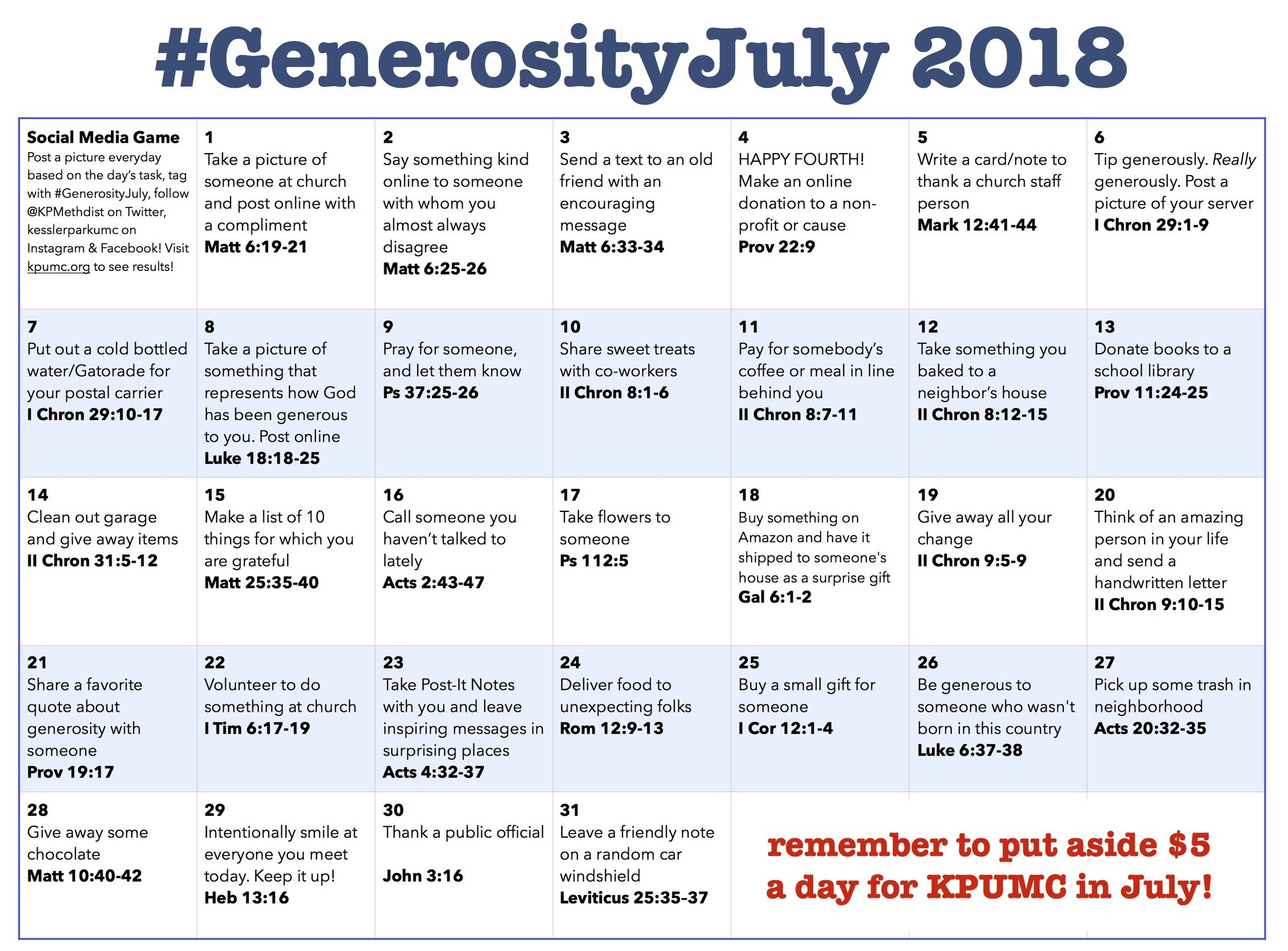Generosity Will Save Us
/Before I became the senior pastor of KPUMC, the Finance Committee recognized that giving declined during the summer months, which caused an unfortunate cash crunch somewhere around August. As a result, they started a fundraising campaign which asked individuals or families to “pay” $250 for one day in the month of July.
The church would publish a July calendar with names of people who had “bought” a particular day of the month, and an invitation to buy the days which were still available.
After I got here, the committee agreed to tweak the idea a little, and now we celebrate Generosity July every year. We invite everyone in the church to set aside $5 per day to give to the church, above and beyond the amount people have already pledged. We still publish a calendar, but now each day of the month specifies a generosity challenge.
This has obviously helped church finances over the past couple of years. But even more importantly, it has forced us all to think about generosity every year.
A lot of us have been complaining about the general mood of the country lately. Recent current events and news bulletins have made us all crabby and cranky. We’re all a little on edge.
Unfortunately, when people are angry and distempered, we also tend to close themselves off from others. We end up clinging a little tighter to what is ours, and we get defensive and reactive.
This is precisely the time for us to practice generosity. I think that it might be the only thing that will save us in these perilous times.
For example, I wish we are all a little more generous in our judgments and conclusions of others. What if we gave more benefits of the doubt, and wished more people well?
I wish our government and society operated out of a posture of abundance and generosity rather than a posture of scarcity and austerity. And I wish our institutions and organizations adopted mission statements that had generosity as a core value and virtue.
Generous organizations and people are open-hearted, warm, and easy to get to know. We like them, and we want to be like them.
So why aren’t we generous year-round? What is it that keeps us from being generous all the time? I always ask myself this question in July, because generosity is fun! It’s a blast to give things away to, and on behalf of, others.
Perhaps it’s because we find ourselves surrounded by a culture that teaches us the opposite. This is one of the downsides of capitalism; a capitalist economy stresses competition, teaches us that there are winners and losers. Advertising teaches us that what’s important is what we buy and acquire, not what we give away. Even our politics is now a zero-sum game — everything is all or nothing. Compromise is a bad word, and there is hardly any generosity in governance.
The church is one place where generosity continues to be a virtue. In fact, it is one of our most important characteristics: God is generous, and God’s most generous act was the sending of Jesus Christ. Jesus was generous, and left behind disciples and apostles who were generous. Generosity was the primary ethos of the early church, after all. In the Book of Acts, we read that the first Christians ate together frequently and shared their goods freely among one another.
Generosity July is supposed to be the prototype of all the other months of the year. It’s the time when we intentionally practice those small and random acts of giving that we ought to be doing all the time.
Because when we finally get it right, it’s generosity that will save us.




